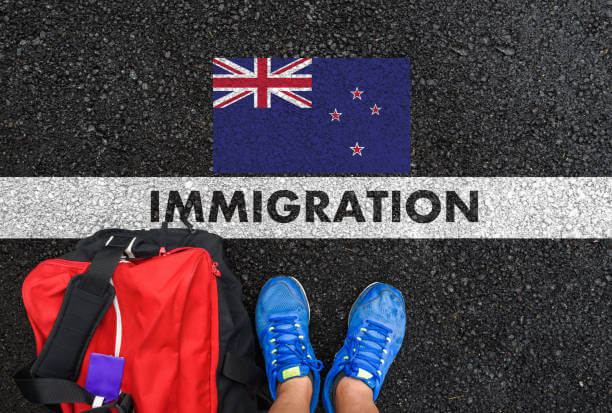Immigration Updates – December
Acts, Employment Law, General, Government, Immigration / 22 December 2023

We set out below some updates for December 2023 along with a summary of changes that may be rolled out in 2024.
Immigration New Zealand closure period
Immigration New Zealand (INZ) will be closed from 23 December 2023 to 2 January 2024. INZ is recommending that visa applications are submitted as early as possible to avoid delays. INZ are actively encouraging Approved Destination Status (ADS) tourism groups to apply for visitor visas as soon as able and that students should apply for visas four months before intended arrival. Employers should also plan to submit Accredited Employer Work Visa applications as soon as able. INZ generally have a backlog of applications in January 2024 which can delay processing.
90-Day trials periods
The Employment Relations (Trial Periods) Amendment Bill gained royal assent on 21 December 2023. This means that from 22 December 2023, the availability of 90-day trials has been extended to all businesses.
INZ ‘s position has been that accredited employers will not be able to use trial periods in employment agreements submitted with Job Check applications. While we understand that INZ is reviewing its position on 90-Day Trial Periods, its current position is that Job Check applications will not be approved, if an employment agreement with a trial clause is submitted with a Job Check application.
Unsustainable immigration
The government have made comments that New Zealand’s net migration gain in 2023 is not sustainable and that it would be working with INZ to make sure there are audits and checks in place to manage migrant numbers. The government will be working to strike the right balance between pressures on housing and infrastructure and allowing employers to fill skills shortages. The UK and Australian government have experienced similar high immigration and have released different policy aimed at curtailing record levels of migration.
Median wage rate
INZ has paused the increase to the median wage rate under the Employer Accreditation Scheme that was scheduled to come into effect from February 2024. This means that the current median wage rate of $29.66 per hour can be used as part of Accredited Employer Work Vis and Job Check application (including past February 2024), until further changes are announced. Sector agreement rates and exemptions to the median wage rate will remain the same.
The new median wage of $31.61 per hour will still apply from February 2024 to other visa categories including the Skilled Migrant Category and Parent Category.
Worker Protection (Migrant and Other Employees) Bill
INZ have released further information in respect to The Worker Protection (Migrant and Other Employees) Bill (Act) that is scheduled to come into force from 6 January 2024. This Act will allow MBIE/INZ to:
- Require employers to provide employment-related documentation within 10 working days of it being requested by an immigration officer.
- Introduce 3 new immigration infringement offences. The offences capture employers that:
- Allow a person who is not entitled under the Immigration Act to work in the employer’s service to do that work.
- Employ a person in a manner that is inconsistent with a work-related condition of that person’s visa.
- Fail to comply with a requirement to supply documents within 10 working days.
- Enable the Chief Executive of MBIE to publish the names of employers who offend against the Immigration Act
The finer details of how MBIE will operationalise the Act has not been released yet, however MBIE have set out that infringement notices will not be issued until after the immigration regulations to support the offences are in place. MBIE and INZ will be able to raise infringement penalties for offending (retrospectively) that occurred up to 90 days before the immigration regulations are in place or from 6 January 2024 (the later date of the two dates). It is likely that the infringement penalty ($3000 per worker for companies) will be added to existing penalties that can be raised.
Post accreditation checks
INZ is aiming to complete post accreditation checks on 16% of accredited employers each year.
As at 22 December 2023:
- INZ has undertaken 1,996 post-accreditation checks and an additional 1,062 are underway
- MBIE has received 1,669 complaints against accredited employers
- There are currently 187 active investigations that are underway with Accredited Employers
- 124 employers have had their accreditation revoked and 35 have had their accreditation suspended
- 46 employers are under assessment to have their accreditation revoked and one employer is currently under assessment to have their accreditation suspended. Revocations and suspensions are due to a range of reasons, and a number are due to liquidation.
Message for employers
We anticipate that there will continue to be a number of changes and challenges in the immigration space in 2024. We have summarised some of the changes that may be implemented in 2024:
- Increase in INZ application fees
- Increases in the cap on the number of workers allowed under the Recognised Seasonal Employer scheme
- Introduction of a five year renewable temporary parent visa
- Liberalised work rights for family members of visa holders
- Replacement of the requirement to work with the median wage as part of Employer Accreditation Scheme, with another requirement
- Increased focus by INZ on audits and more stringent processing of accreditation and Job Check applications
- Increase in infringement and penalty offences raised by INZ
Our team would be most happy to assist you with compliance checks, audits and navigating the immigration space in general, leveraging our expertise in workplace law. Please reach out to our team if you need help. We would be happy to provide bespoke advice tailored to your needs.
Disclaimer: We remind you that while this article provides commentary on employment law, health and safety and immigration topics, it should not be used as a substitute for legal or professional advice for specific situations. Please seek legal advice from your lawyer for any questions specific to your workplace.